Septic Tank Pros and Cons — Sewage Disposal Systems
-

- Last updated:
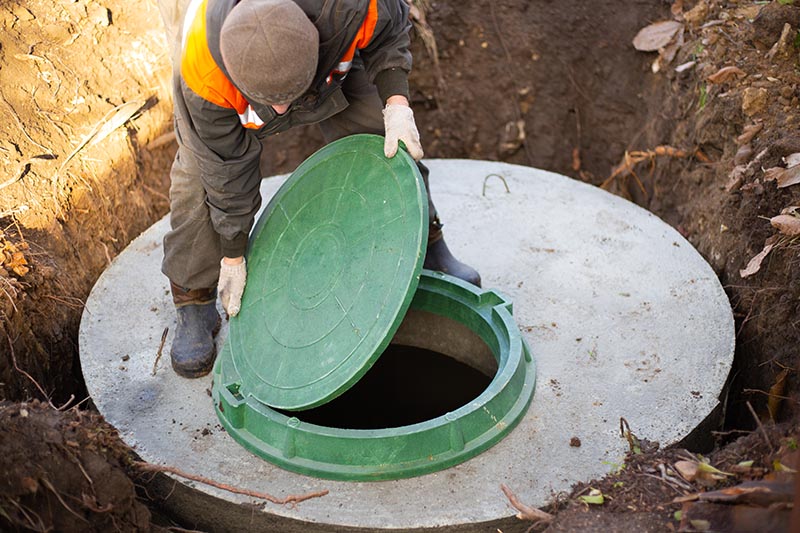
A lot goes into ensuring the proper treatment and disposal of our kitchen and bathroom waste. And while we often take our waste disposal systems for granted, it’s hard to overlook their utility and long-term benefits.
Over 21 million households,1 or one-fifth of all households in the US, use septic tanks for their waste disposal, and for good reason. Septic tanks are relatively inexpensive, easy to install, and highly durable. They are also much less environmentally impactful than other waste treatment options like landfills or sewer systems.
If you’ve been mulling over getting a septic tank for your home or business, we’re here to help you make the right choice. Today, we’ll highlight some of the pros and cons of septic tanks so that you can make a more informed decision.
Click to Skip Ahead:
What Is a Septic Tank?
A septic tank is a specially designed receptacle that collects and treats household waste such as sewage, food scraps, and solid waste. The tank itself is buried underground, serving as a holding chamber for all the waste your home produces.
Septic tanks are usually made of concrete or fiberglass and rely on various natural processes to treat waste properly. Specifically, the tank is designed to separate solid waste from liquid waste through a series of filters and chambers. Once isolated, bacteria within the tank break down both waste into more harmless by-products.
The 5 Pros of Septic Tanks
Septic tanks confer a plethora of benefits for both home and business owners. Here are some of these benefits:
1. Cost-Effective Alternative to Drainage Systems
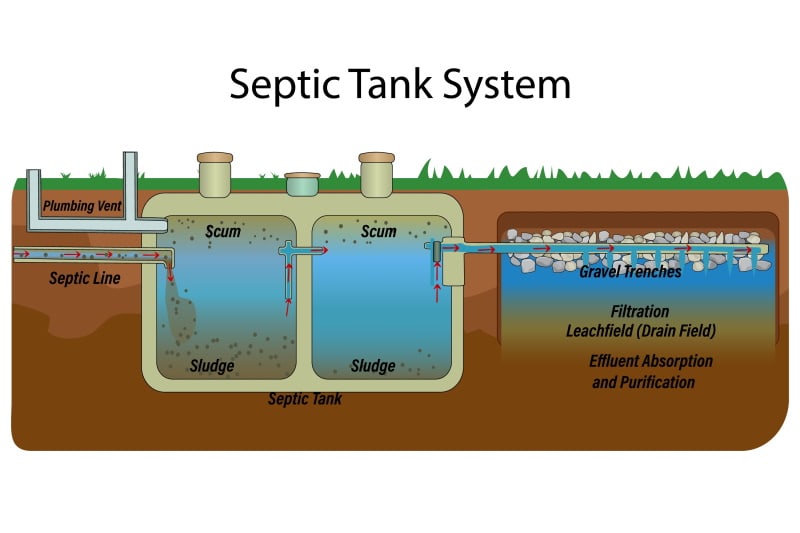
Septic tanks are a much more affordable alternative to sewer and drainage systems. They’re easy to install and maintain, with basic designs that work for most homes and businesses. What’s more, both home and business owners can sidestep hefty water and sewer bills and save a bundle in the long run.
2. Extremely Durable and Long Lasting
Septic tanks are also highly durable and long-lasting. If you take good care of your septic tank, it could easily last you several decades. This means less maintenance and repair costs for you down the road. You also don’t have to worry about prematurely replacing your septic tank, which is a major issue with some drainage systems.
3. Great for the Environment
Perhaps the biggest benefit of septic tanks is that they are much more environmentally friendly than other waste disposal options. Because septic tanks rely on natural processes to treat and dispose waste, they cause minimal environmental impact. And unlike landfills or drainage systems, septic tanks don’t require much water to operate.
4. Don’t Require a Lot of Maintenance
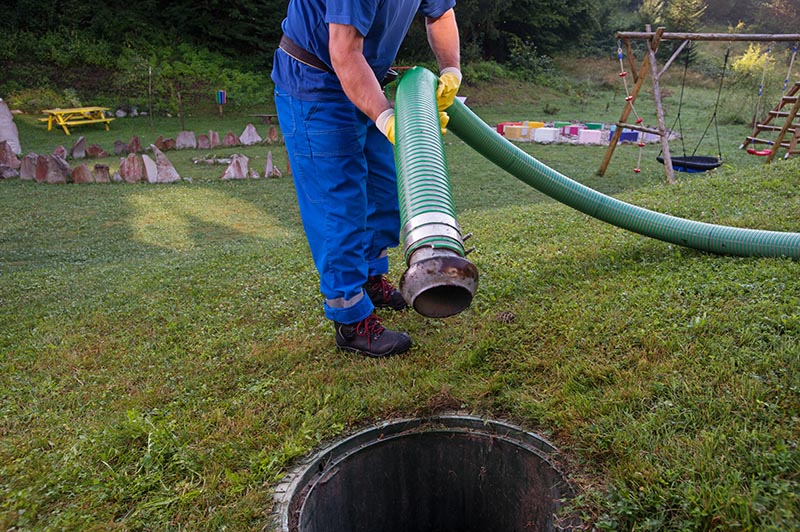
In addition to being cost-effective and environmentally friendly, septic tanks require very little maintenance. In fact, routine septic tank maintenance is usually limited to pumping out solid waste with a specific frequency.
This means that you can have peace of mind knowing that your septic tank will continue to function as intended without much extra effort. This also saves you money on maintenance and repairs.
5. You Can Use Them in Rural and Remote Areas
Sewerage and drainage piping networks are limited to urban areas with elaborate water and sewer infrastructure. Septic tanks, on the other hand, don’t require a connection to a water or sewage network, meaning you can use them even in the most remote areas.
The 7 Cons of Septic Tanks
There’s no question that septic tanks are immensely beneficial to both home and business owners across the country. But this doesn’t mean that they’re perfect. Here are a few cons of these waste disposal systems.
1. Require a Lot of Space
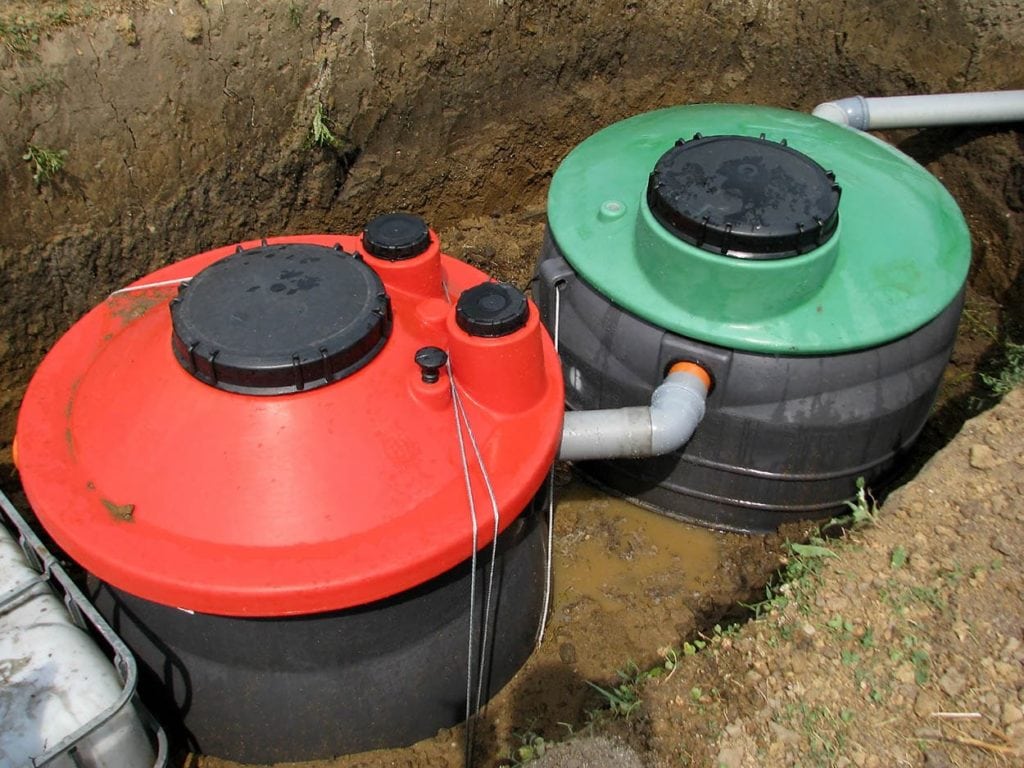
Unlike public sewer systems that only use pipes buried underground, septic tank systems require a lot of fixtures that take up a lot of space. The tank itself must be buried several feet underground, and you’ll need room for a drain field above ground as well. These constraints can make it difficult to find the right location for your septic system if you don’t have enough vacant space on your property.
2. Produce a Foul Odor Without Proper Maintenance
If your septic tank isn’t properly maintained, it can start to produce a foul odor. A problem with waste digestion could result in the buildup of toxic gasses in your drain field. Excessive accumulation of these gasses could result in leaks and hence, the foul odor.
You can remedy this by regularly pumping out the septic tank to remove solid and gaseous waste.
3. Hefty Upfront Costs
While septic tanks are affordable in the long run, they can be costly to purchase and install. In fact, some homeowners may have to get a home equity loan to pay for their septic tank installation. However, with the amount you’ll be saving in bills over the next few decades, the initial investment is ultimately worth it.
4. Can Sometimes Be a Health Hazard
Unfortunately, if your septic tank isn’t properly maintained, it can become a health hazard. This is because the buildup of sludge and other waste leads to an increase in bacteria and viruses. When this happens, homeowners are more likely to face water contamination issues that could affect not only them but also their neighbors.
Wastewater can seep out of the tank and contaminate the groundwater, making it dangerous if ingested. That’s why it’s important to follow a strict septic tank maintenance routine and have your system inspected regularly to ensure no such issues occur.
5. Repairs Can be Expensive
Should your septic tank develop any leaks, cracks, or other issues that need to be repaired, it can end up being quite costly. This is because you’ll often have to replace the entire system if it’s heavily damaged.
You’ll end up paying between $3,000 and $7,000 for septic tank replacement. This is significantly more expensive than repairing leaks or breakages in a conventional sewer system.
6. Easy to Clog Up
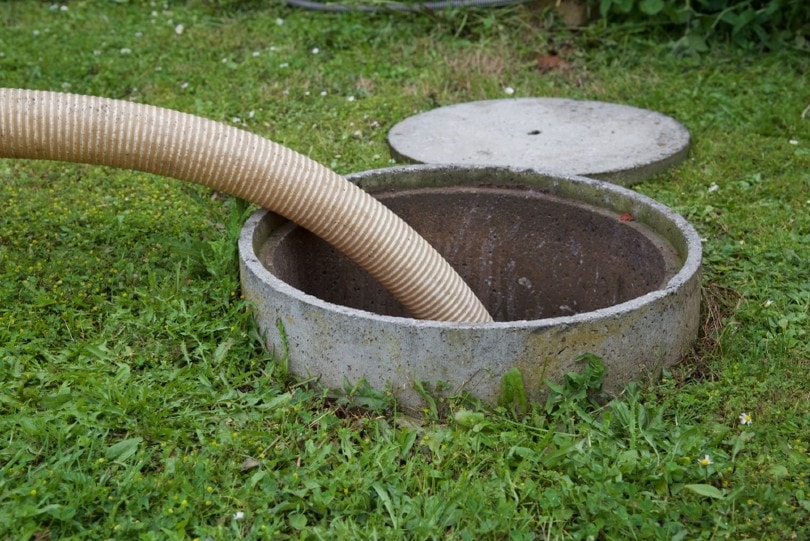
Septic tank owners need to be extra careful with whatever they flush down the drain. That’s because the sewage can easily clog the septic system and lead to serious issues.
Some items that may not break down and cause a problem include baby wipes, paper towels, rags or cloths, feminine hygiene products, dental floss, coffee grounds, fats or grease, food scraps, paints or other chemicals, or pharmaceuticals. If you’re not sure whether something is safe to flush down the toilet, check with your septic tank service provider before doing so.
7. Can Be Visually Intrusive
The last thing you want on your beautifully manicured lawn is a large tank sticking out like a sore thumb. But that’s exactly what you get with a septic tank system. These systems are unsightly and can be distracting or even off-putting. You may have to deal with an unsightly tank and grass patches around the tank.
Can I Install a Septic Tank By Myself?
There are certain regulations that govern how septic tanks should be installed and maintained. If you’re not a licensed professional, it’s best to leave the installation to the professionals. Otherwise, you could put your health or the health of others in danger and lose a ton of money in the process.
Only a qualified professional should install a septic tank system, as they will be knowledgeable about the types of materials and systems that are best suited to your needs, the regulations surrounding proper installation, and how to maintain it over time. They’ll also have access to all the tools, equipment, and supplies needed to get the job done right.
Final Thoughts
Whether you should install a septic tank depends on your budget, circumstances, and specific needs. Remember, only a licensed professional should handle your septic tank installation. You risk the health and well-being of your family, as well as the safety and value of your property if you try to do it on your own.
If you’re interested in installing a septic tank, explore the options available to you, different types of tanks (concrete or plastic), location on the property, and how you should maintain them over time. Remember to follow all local regulations and enlist the help of a professional when needed. With careful consideration and planning, you can decide whether installing a septic tank is right for you.
- https://dengarden.com/home-improvement/Pros-and-Cons-of-Septic-Tanks
- https://www.mrrooter.com/oneida/about-us/blog/2017/march/pros-and-cons-of-a-septic-tank-system/
- https://www.muck-munchers.co.uk/septic-tank-smells-and-how-to-fix-them/#:~:text=to%20be%20addressed.-,Why%20Does%20Your%20Septic%20Tank%20Smell%3F,get%20the%20tank%20pumped%20out.
Featured Image Credit: Natalia Kokhanova, Shutterstock
Contents



